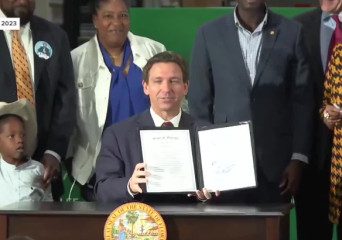
Table Of Contents
Alert: There Is Not Enough Data On The LGBTQ+ Community
In the U.S., there hasn’t been much information collected about the number of LGBTQ+ residents, especially those who are intersex – meaning they don’t fit into the usual male or female categories. Because of this, lawmakers are making decisions without knowing the full impact of their laws.
The Williams Institute at the UCLA School of Law is a think tank that studies sexual orientation and gender identity demographics to help with laws and policies. According to Christy Mallory, the legal director of the Williams Institute, knowing the population is necessary to study the effects of these laws.
In Kansas, a new law defines a person’s sex as either male or female based on their biological reproductive system at birth. This doesn’t include nonbinary or intersex people and ignores transgender individuals.
Some discussions about gender-affirming care bans were influenced by a study from 2018 that has since been proven wrong. This study suggested that kids might feel gender dysphoria because of their peers, leading to false claims about the number of transgender people.
Because of these arguments based on the discredited study, some states like Georgia and Idaho passed bans on gender-affirming care. We need to be careful and consider the real impact of these laws on all individuals.
LGBTQ laws can have a significant impact on the lives of LGBTQ individuals. These laws are meant to protect the rights and well-being of lesbian, gay, bisexual, transgender, and queer people.
When these laws are positive, they can bring about positive changes. These laws that protect LGBTQ people from discrimination in employment, housing, and public places help create a fair and equal society. Such laws ensure that LGBTQ individuals have the same opportunities and rights as everyone else.
These laws that allow LGBTQ couples to marry and have equal rights in family matters promote love and equality. LGBTQ families can enjoy legal recognition and benefits, just like heterosexual families.
Read More On LQBTQ









